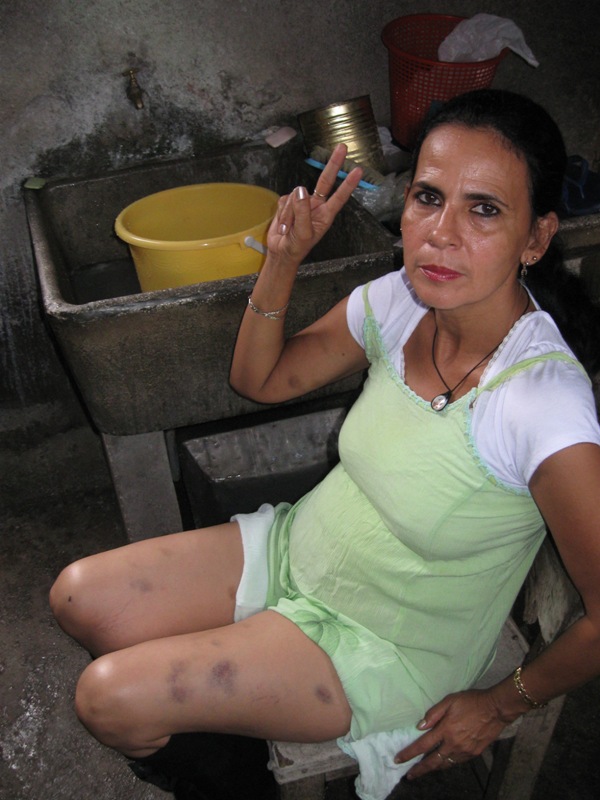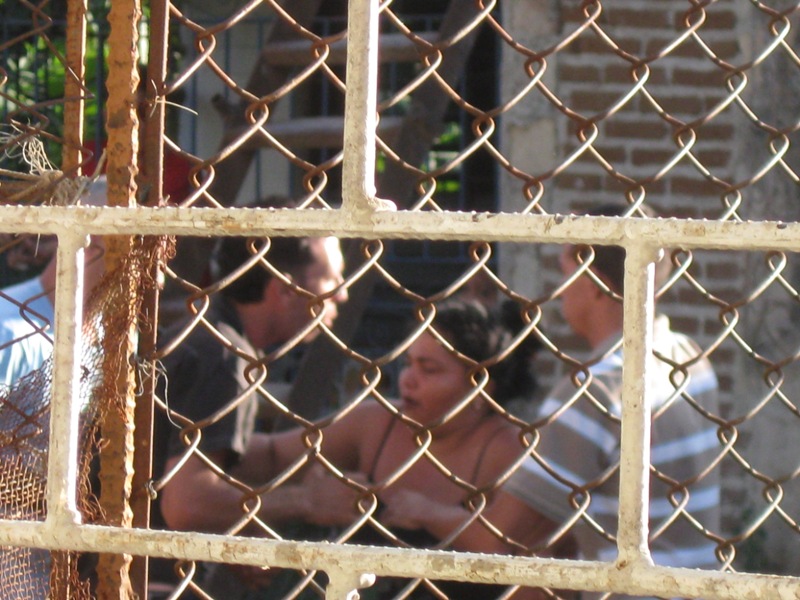
For those who cannot see the photo attached to this post, Marta Diaz Rondon is sitting on a stool with her fingers in a V shape. The “V” represents “victory”. Her eyes are black and can either make you fall in love or feel fear. Up to that point, the description could very well fit any woman. But when one looks down you can see her thighs, legs, and arms are covered with bruises. These marks are the results of a beating given to her by the experts of the Cuban political police on October 31, 2010 in the town of Banes.
Marta was imprisoned in Holguin, and upon being released she went over to the house of her friend and sister, Caridad Caballero Batista, and that is where I took these photos. A few days later, she told me about the beatings. The culprits were men, although some women also took part in her mistreatment. However, the actual physical blows were given to her by men — those same men who claim to be patriots and protectors of Cuba’s security. Majors Freddy Aguero Allen and Wilson Ramirez Perez had already mistreated her once, along with Caridad, inside a car with music blasting on the stereo. This all occurred in Banes, the land of the poet Gaston Baquero y Antilla, and the very same place where it is said that the Virgin of Charity first appeared.
 If I were to bump into any of these “men” in any of the torture cells or interrogation offices, I’d ask them about the perverse beatings of these women which occurred behind tinted windows and with reggaeton background music.
If I were to bump into any of these “men” in any of the torture cells or interrogation offices, I’d ask them about the perverse beatings of these women which occurred behind tinted windows and with reggaeton background music.
Despite the beatings, each week Marta continues to walk 2 kilometers from her house to the home of Reina Tamayo Danger to accompany her to the church and to the cemetery.
Between the old La Guira cemetery and the historic Banes monuments of the Republican era there now lies a trail of blood, of abuses, and laments of defenseless pro-democracy activists who, one day, will really frighten their oppressors. But it will be the fear of truth, as is shown in this photo, and which is always present in the words of Marta and many others, who both accuse and forgive at the same time.
There will be many voices working in favor of that country which was lost one day… in what century? The Nineteenth? Twentieth or Twenty-first? Who knows.
Translated by: Raul G.
January 24 2011
